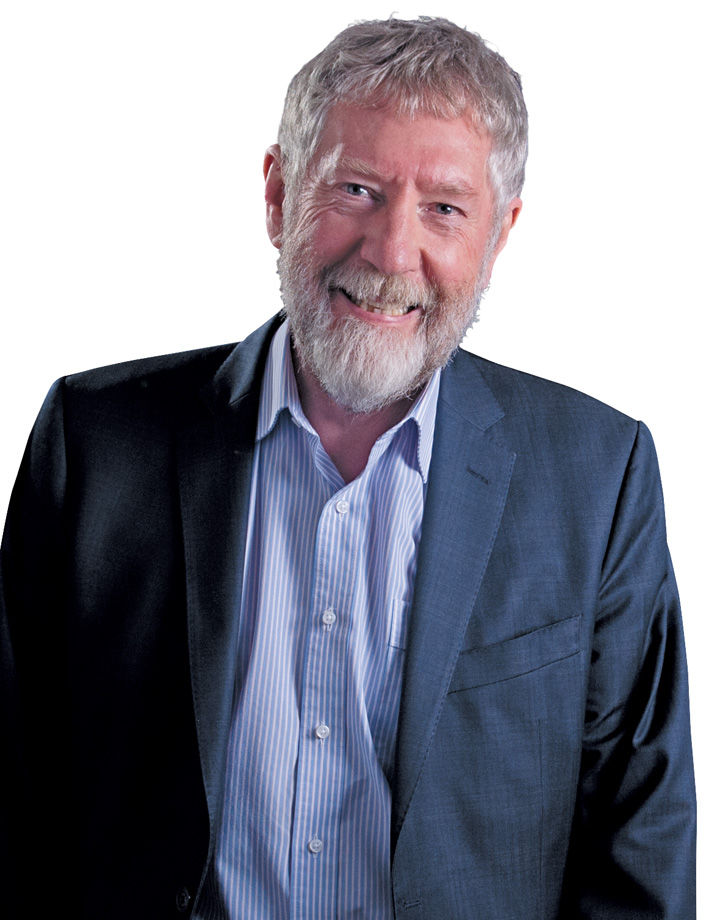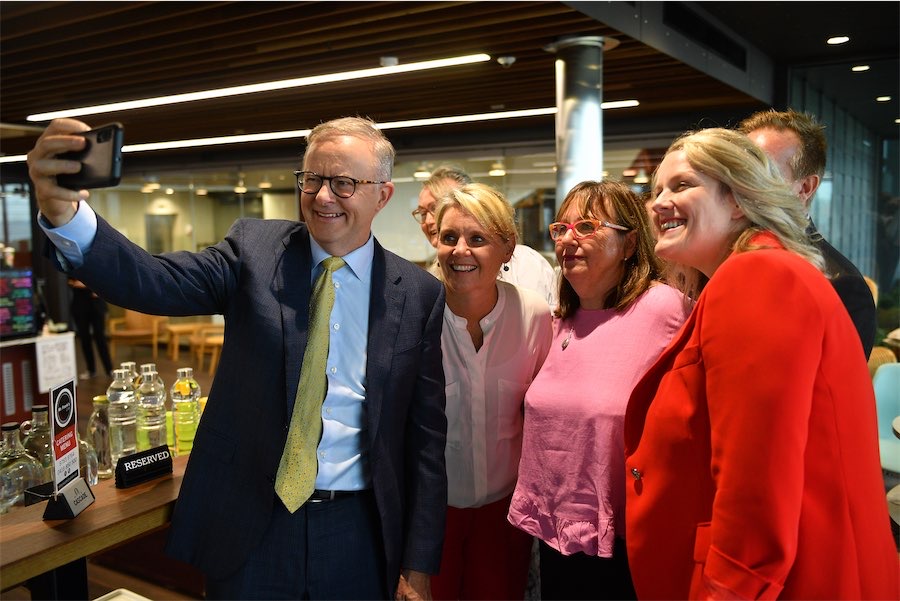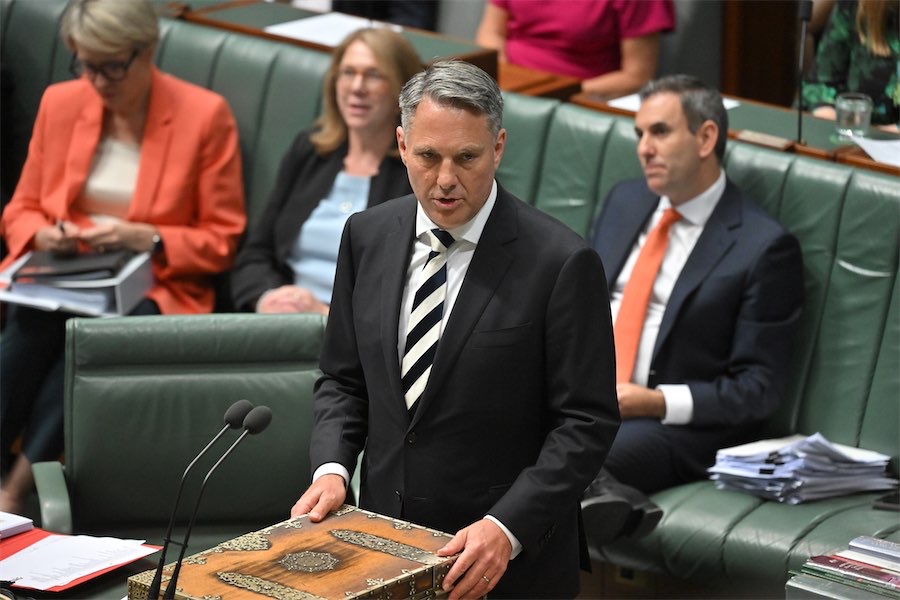
“Too many restrictions have been lifted too soon. It is simply time to reintroduce the use of masks, for example, in such settings as supermarkets, for sporting spectators, for pubs, clubs and nightclubs,” writes political columnist MICHAEL MOORE.
WITH the election behind us, it is time to question Australia’s current control of the COVID-19 pandemic.

Political expediency has Australian governments dropping the ball, clouding the figures and reluctant to take appropriate action.
Is there anyone in Canberra who does not know multiple people who have come down with the virus? For many, thanks to the high rate of multiple vaccinations, the symptoms have been relatively mild. However, there are a rapidly growing number of people who are in intensive care and there are an increasing number of deaths.
Relying on goodwill in order to encourage people to socially distance, to wash hands and to wear masks has not proven successful. As I argued a few weeks ago, the pendulum has swung too far. The numbers simply continue to increase. And they are increasing exponentially.
How many people are taking the rapid antigen tests (RAT) and not reporting the result? How many people are feeling sick and do not want to be restricted in any form of isolation and are, therefore, not taking even the RAT? Despite fuzzy numbers, there are around 60,000 new cases being reported every day in Australia.
More than 3000 hospital places are being taken up by people with COVID-19 and there are around 135 in intensive care units with around a third of these needing ventilation. Australia is now approaching seven million cases of COVID-19 with the number of active cases being estimated at just short of 400,000.
The ACT is no exception. We have just seen the highest numbers of cases in the Canberra hospitals and can expect to see a further increase with more than a thousand new cases in the community being reported each day. About half of these are tested at home using the RAT system and the other half identified using Polymerase Chain Reaction tests (PCR).
Restrictions at the moment are focused on close contacts of a person who has tested positive. However, the spread of the virus should be enough to wake governments up to the reality that too many restrictions have been lifted too soon.
It is simply time to reintroduce the use of masks, for example, in such settings as supermarkets, for sporting spectators, for pubs, clubs and nightclubs.
Some will continue to wear their masks in other settings out of consideration of others or to protect themselves. Governments should also encourage this approach.
The issue of the pandemic did not feature strongly in the election campaign. Perhaps focus groups indicated to candidates that such discussion would be divisive and would cost votes. However, it is possible to take note of the issue of covid regulation fatigue at the same time as finding the right regulatory balance.
ACT Health Minister Rachel Stephen-Smith has been asking people to restrict Emergency visits to our hospitals for real emergencies and has indicated that elective surgery is about to be postponed. The spread of the pandemic increases the demand on beds and has an impact on staffing.
Schools and childcare facilities are also feeling the impact with some returning to remote learning due to increases in covid-related student and staff absences. This also has a significant impact on working parents and their productivity.
Blaming indefinite postponement of elective surgery solely on COVID-19, however, is a cop-out. As columnists Jon Stanhope and Khalid Ahmed have warned a number of times in “CityNews”, constantly cutting hospital budgets in real terms has a dramatic impact on the delivery of health services.
As recently as April 6, commenting on the public hospitals, they stated: “We have on several occasions since 2016, noted that the annual funding growth provided in ACT Budget forecasts was not sufficient to meet the costs of inflation and population growth or the increase in demand from ageing, and improvements in technology.”
More people are getting sick, our hospitals are struggling, and people are dying from COVID-19. Despite this, our governments prefer to sit on their hands rather than introduce gentle but effective public health regulation that could, at least to some extent, protect our hospitals, promote productivity and save lives.
Michael Moore is a former member of the ACT Legislative Assembly and an independent minister for health. He has been a political columnist with “CityNews” since 2006. There are more of his columns at citynews.com.au
Who can be trusted?
In a world of spin and confusion, there’s never been a more important time to support independent journalism in Canberra.
If you trust our work online and want to enforce the power of independent voices, I invite you to make a small contribution.
Every dollar of support is invested back into our journalism to help keep citynews.com.au strong and free.
Thank you,
Ian Meikle, editor





Leave a Reply